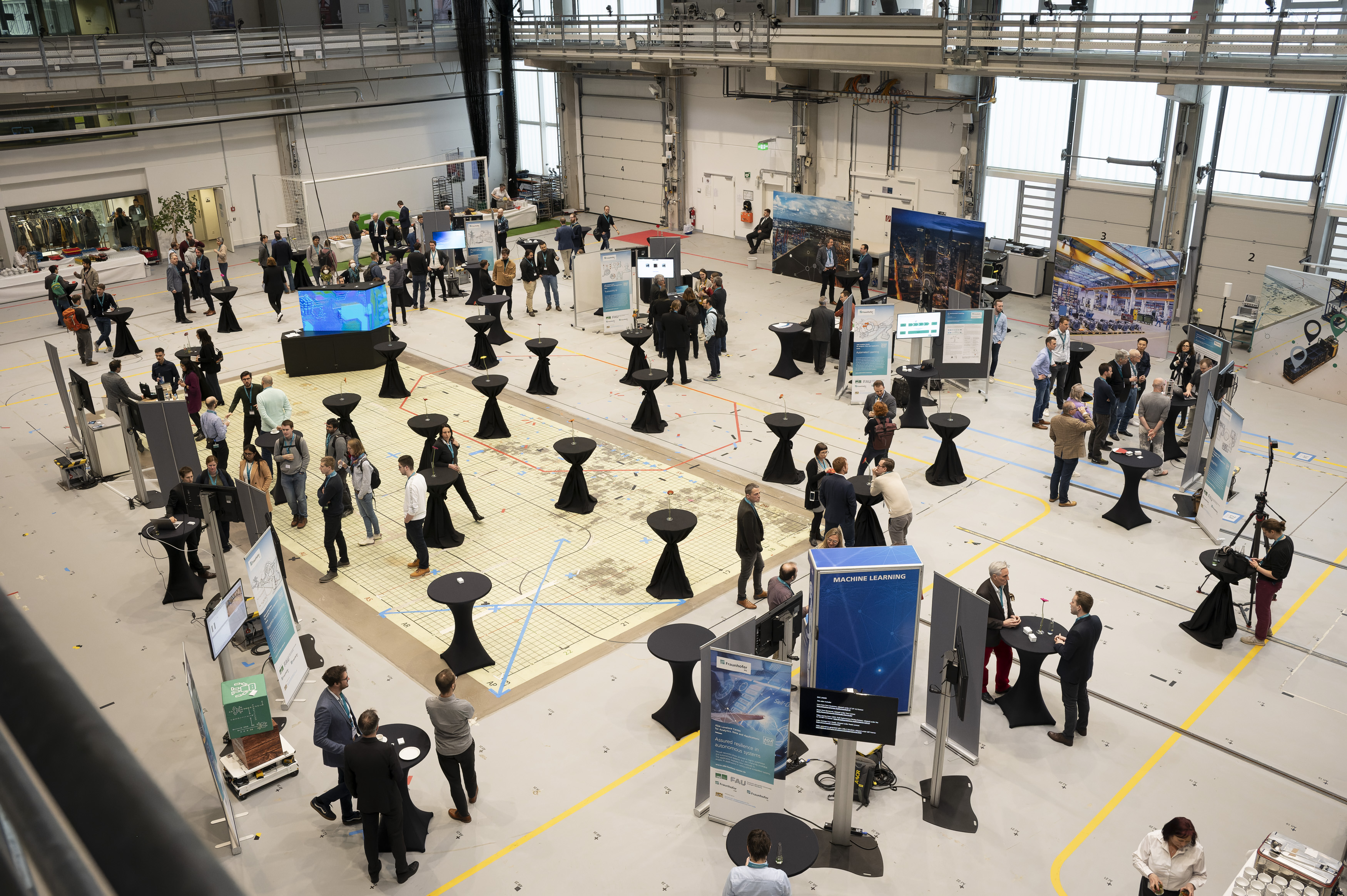Over the past five years, the ADA Lovelace Center has built up an international network that connects science and industry. These connections make it possible for research into AI, machine learning, and optimization to find its way into practice. Visitors to the Conference on Optimization and Machine Learning in Industry, held in Nuremberg in March 2023, noted that the competence center for AI is and will remain an important hub for companies that want to ready themselves for future international competition by means of digitalization.
How to transfer knowledge about data analytics and AI to industry
26. Sept 2023 | Fruitful discussions at the Conference on Optimization and Machine Learning in Industry
“This is a place where inquisitive minds meet,” said Prof. Alexander Martin, Director of Fraunhofer IIS. “Their exchange strengthens and expands our network across a wide range of application domains and AI methods.” The conference was open to all interested parties from industry and research, with the aim of promoting the transfer of ideas between science and industry.
Presentations on practical applications of AI
A two-day workshop held prior to the conference focused on research. Members of the ADA Lovelace Center’s international partner network who attended the workshop discussed the latest findings in machine learning and optimization research and brought this perspective to the conference. Complementing the scientific perspective were keynotes and inspiring talks by speakers from industry. One of them was Prof. Patrick van der Smagt, Head of AI Research at VW Group, who gave a keynote presentation entitled “Predict to control.” He saw the presentations by the ADA Lovelace Center experts as an example of the connection between science and industry, and he praised their excellent illustrations of how machine learning can work in practice.
International scientific exchange among peers
Another conference highlight was a panel discussion featuring experts from the ADA Lovelace Center network on the prospects for using AI. The added value of international exchange is clear, says Prof. Martin: “We collaborate with top-tier scientific institutions around the world, such as the Zuse Institute in Berlin, the RIKEN organization in Tokyo, and the Machine Learning Center in Atlanta. The intensive scientific dialogue shows how well we can learn from each other and how high a level we’re operating at.”
Exploring and advancing AI methods with the ADA Lovelace Center
IIn 2018, the Fraunhofer Institute for Integrated Circuits IIS created a unique research infrastructure in Bavaria in cooperation with the Friedrich-Alexander-Universität Erlangen-Nürnberg and the Ludwig-Maximilians-Universität Munich. Along with the participation of the Fraunhofer Institutes IKS and IISB, they established the ADA Lovelace Center for Analytics, Data and Applications.
Over the past five years, the ADA Lovelace Center has succeeded in creating structures that appear to be unique in Germany. According to Prof. Sebastian Pokutta, Vice President of the Zuse Institute Berlin and member of the ADA Lovelace Center advisory board, the ADA Lovelace Center has unusually close ties to industry. The Center takes up questions that emerge from practice, then researches and refines scientific methods so it can feed them back into the realm of practical application. Added to this is the exchange of ideas in its international partner network, which makes it possible to discuss new issues with others and thus also to find completely new approaches.
According to Prof. Martin, it is precisely these networks and structures that will continue to exist beyond the end of the project. In the future, Fraunhofer IIS will keep driving AI topics across Bavaria, and it aims to further expand its AI expertise, so as to explore the use of AI in additional domains and put it into practice.
Conference Highlights

